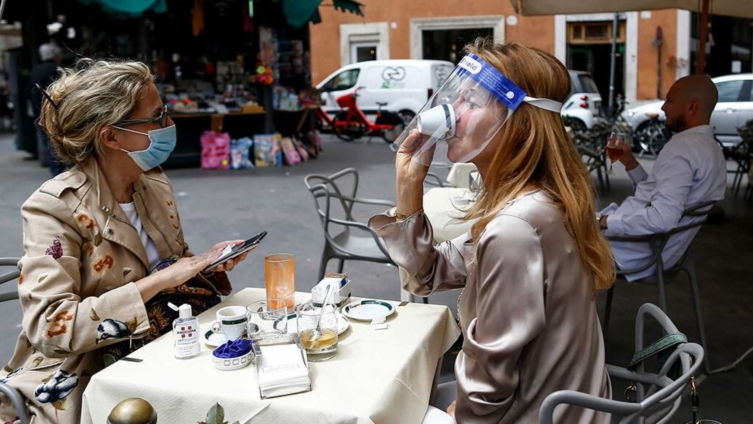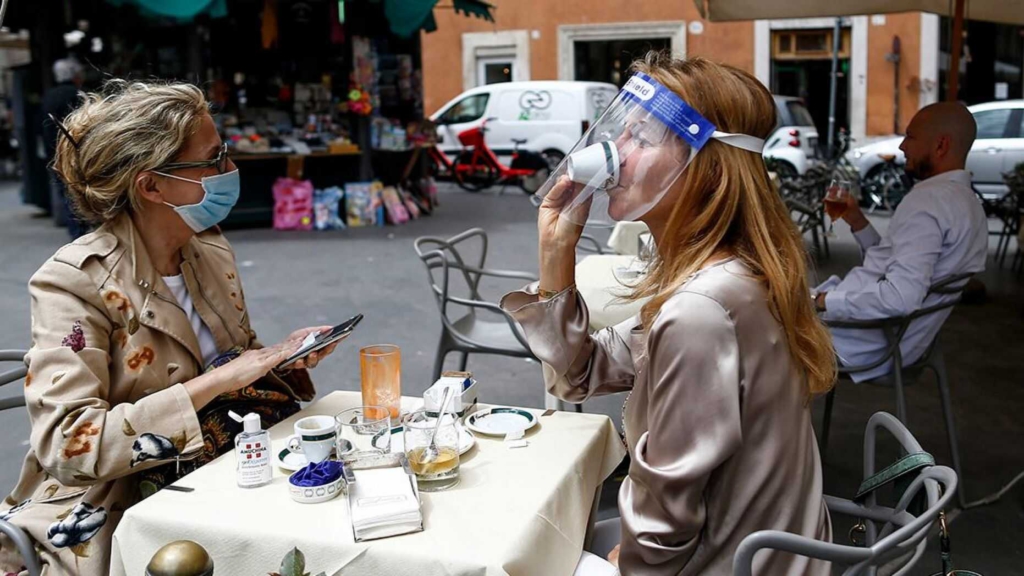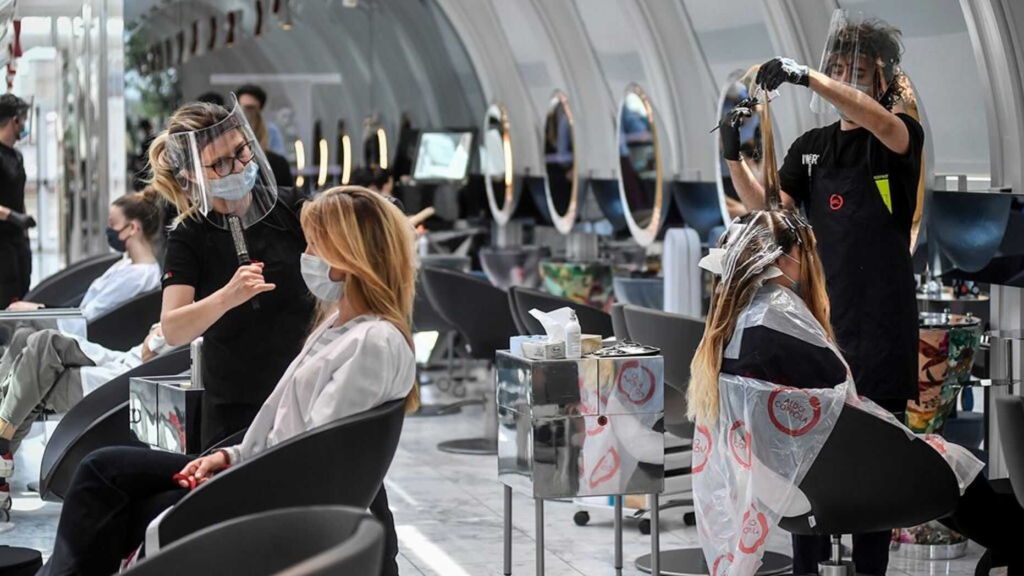Italians could attend in-person Mass and enjoy meals and drinks at newly reopened bars and restaurants for the first time in two months Monday as the country continued to come out of its once grueling lockdown put in place to limit the spread of the coronavirus in what was once the epicenter of the outbreak in Europe.
Stylists wearing face shields gave clients long-awaited haircuts in salons and barbershops in Milan, The Guardian reported. Venice gondoliers wore face masks while transporting people along the Grand Canal – where weeks earlier boat traffic was virtually nonexistent, and waterways looked empty from space.
People sipped cappuccinos in outdoor cafes while they sat at least 2 meters (6.5 feet) away from other customers, and outdoor markets reopened in the southern city of Salerno
Italy was the first in Europe to impose a nationwide lockdown on March 10, as it quickly was becoming the worst-virus stricken country in the world after the novel COVID-19 illness broke out of China late last year.
As of Monday, Italy ranked sixth in the global tally of infections with more than 225,000 confirmed cases, and third in fatality count, with more than 32,000 deaths.
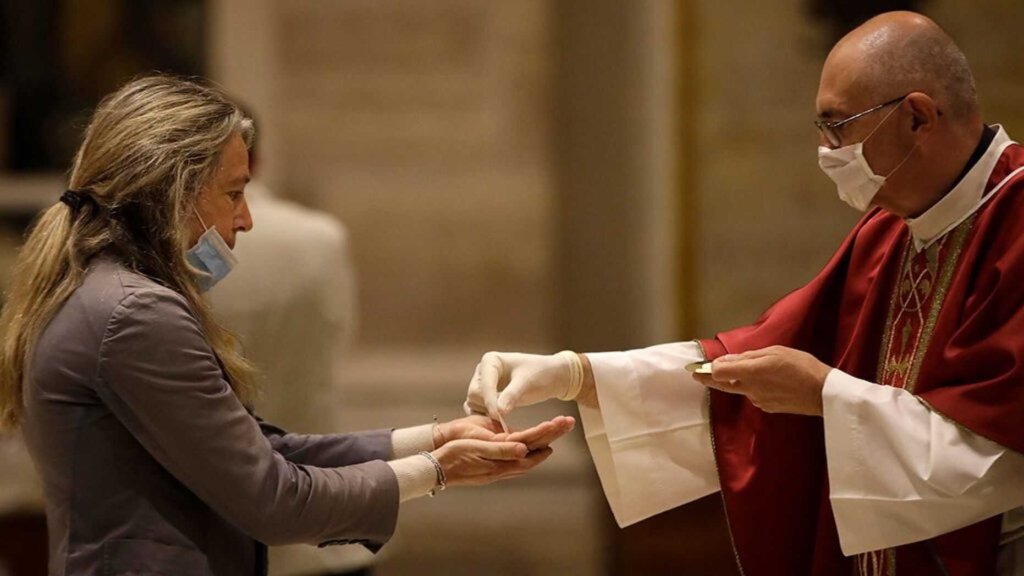
Prime Minister Giuseppe Conte called lifting lockdown measures a “calculated risk” necessary after the country’s economy shrunk by 10 percent, The Guardian reported.
Italy and the Vatican allowed the first public Masses since mid-March following a sharp confrontation between church and state over limits on worshiping in the era of COVID-19.
Guards in hazmat suits took the temperature of the faithful entering St. Peter’s Basilica, where Pope Francis celebrated an early morning Mass for a handful of people to commemorate the centenary of the birth of St. John Paul II.
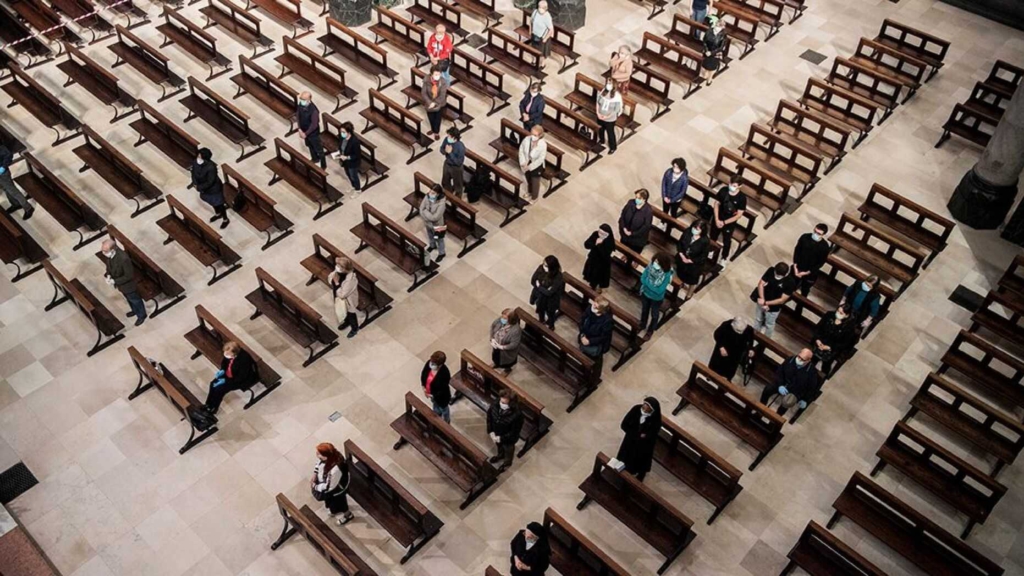
Across town, the Rev. Jose Maria Galvan snapped on a latex glove and face mask before distributing Communion to the dozen parishioners attending the 7:20 a.m. Mass at his Sant’Eugenio parish, the Associated Press reported.
With several hundred new infections still being recorded in Italy every day, the reopening involves strict virus-containing measures that regulate everything from how you get your coffee to the way you pray.
The government published 120 pages of detailed norms for the resumption of work, play, worship, and commerce, with some of the most intricate protocols reserved for the resumption of public religious observance.
There’s fear that the elderly, among the most religiously devout and also the most at-risk for infection, could be exposed to the virus with resumed religious services in the onetime European epicenter of the pandemic.
Italian Catholic bishops issued a blistering public critique of Conte's government when it refused to allow public Masses two weeks ago, during the first easing of restrictions. They argued their freedom to worship was being trampled on in violation of the terms of the Lateran Treaty, the 1929 accord that regulates the relationship between the Italian state and the Vatican.
Eventually, an accord was reached, but it imposes a series of restrictions on access and even the administration of the sacraments: At Sant'Eugenio, the Sunday 11 a.m. Mass usually exceeds 500 people. Now only 150 can attend. Everyone must wear a face mask and sit a meter apart.
There's no holy water or choir, and unused pews for the morning Mass were roped off with tape to keep them sanitized for when the bigger crowds come later in the day.
Priests must wear gloves during Communion and “take care to offer the host without coming into contact with the hands of the faithful," according to the protocol. The priest must not place the Eucharistic host on the tongue of the faithful, despite that being the Vatican's preferred way.
Francis has made clear he supports the measures, even if he bristled early on at the lockdown and said livestreamed Masses could never be a substitute for the real thing.
“Please, let's go ahead following the rules and prescriptions we’ve been given to care for the health of each and everyone," he said in his Sunday noon prayer announcing communal church celebration could resume and the faithful could once again receive their sacraments.
The Vatican, as a sovereign state, has its own post-lockdown reopening norms and is not beholden to the Italian government measures.
Latest Stories
-
Mobus CEO apologises to Nigerian Police over Abuja land row, distances firm from protest at Nigerian High Commission in Accra
2 hours -
Experts urge institutionalisation of evidence-based health policies in Ghana
2 hours -
Government to convert National Cathedral site into National Cultural Convention Centre
2 hours -
Former Sports Minister Mustapha Ussif loses sister
3 hours -
Ayoum community appeals for fixing of collapsed bridge to ease commuting
3 hours -
Full text: Mahama’s speech at the Post-Election Evaluation Dialogue
3 hours -
Kumasi: 545 police personnel pass out to support 24-hour economy
3 hours -
No Ghanaian child will be denied tertiary education because of fees – Mahama
4 hours -
Ghana, U.S. reaffirm strategic ties at 249th Independence Day celebration
4 hours -
Full text: Mahama’s speech at launch of No Fees Stress policy
4 hours -
President Mahama promises justice for electoral violence victims
4 hours -
JoyNews Impact Maker awardee nominated for Global Citizen Waislitz Award, vote for him to win $100,000
5 hours -
Partey has fully cooperated with police throughout three-year investigation – Lawyer Jenny Wiltshire
6 hours -
Thomas Partey denies all the charges against him – Partey’s lawyer Jenny Wiltshire
7 hours -
Labena unveils new album “Life in Roses” at Bayview Village
7 hours

